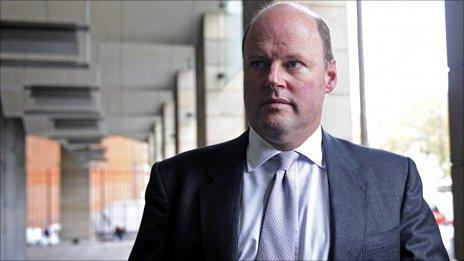Bonuses - Politicians taste blood
- Published
- comments
The bankers of Royal Bank of Scotland may come to regret their boss's admission that he waived his bonus rather than face a parliamentary vote on it. What's more they might not be the only ones.
Politicians led by Ed Miliband have tasted bankers' blood - a taste they may get used to.
What the case of Stephen Hester showed is that the public's anger with the banks can't be assuaged by cutting one bonus to less than a symbolic £1m or by insisting that the man running RBS is simply being rewarded for doing what he was hired to do or saying that his pay is "a matter for the board" or hoping that he won't take the money he's offered.
David Cameron has tried each of those tacks in recent days and has been left looking pretty lame and pretty isolated.
Ed Miliband has had his first victory since his stand against Rupert Murdoch on hacking and, after a dreadful start to the year, is unlikely to let go now.
Nick Clegg wants to define his role in the Coalition as "fairer than thou" and so won't be far behind. Even Boris Johnson, the man who prided himself on standing up for the City of London, couldn't bring himself to defend Hester's bonus in this mayoral election year.
The question now is why stop at this bonus? What about Hester's long term incentive payments? Or his pay? Or the bonuses and pay of all those in RBS's investment arm? Why shouldn't Labour threaten to engineer votes on them?
Some may see this as the beginning of a process which brings global capitalism under the control of democratic politicians.
It will take a very brave politician indeed to argue that the City of London will not survive for long if bankers' pay appears to be being set by opinion poll.
- Published30 January 2012

- Published29 January 2012
- Published27 January 2012
